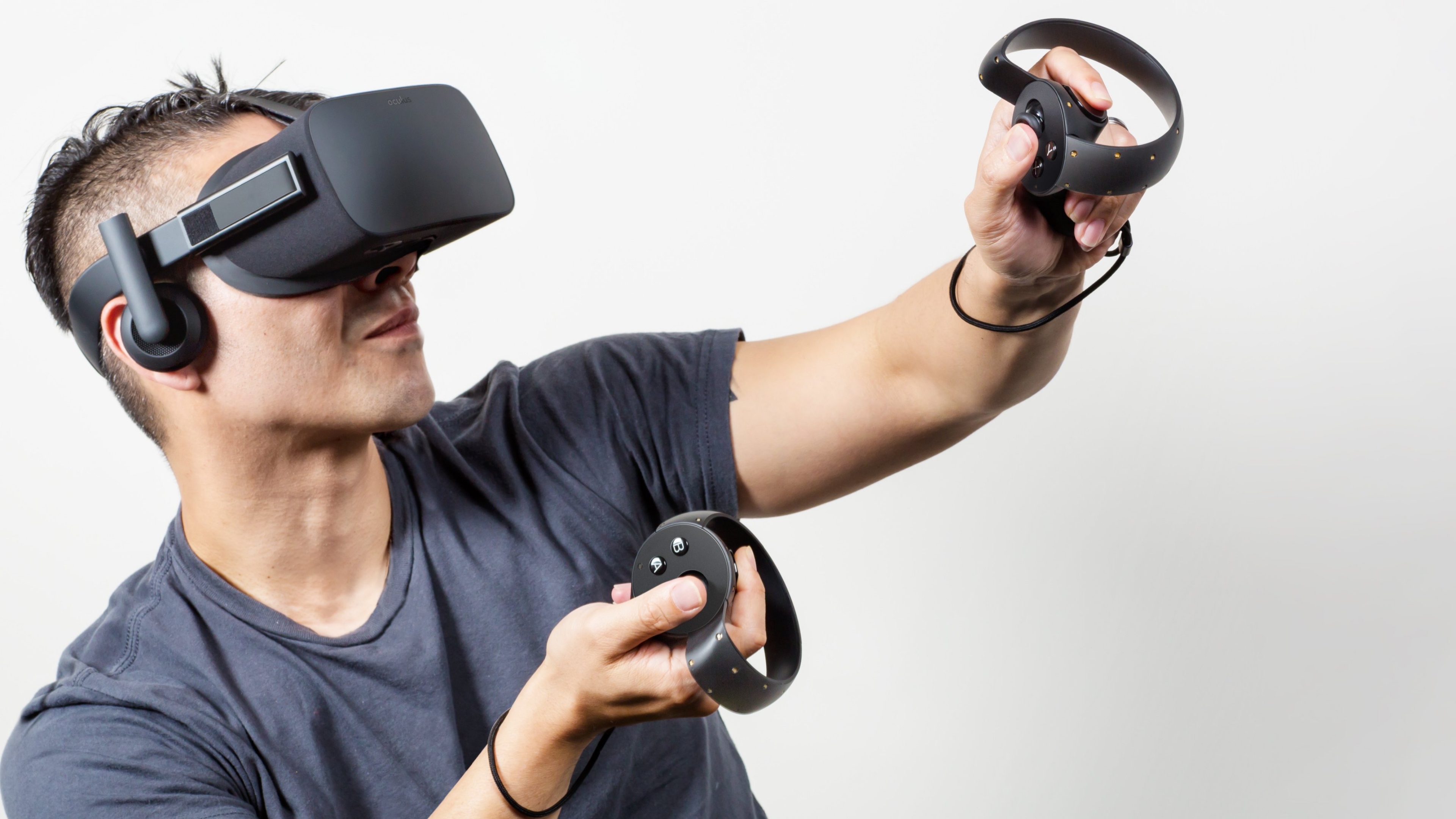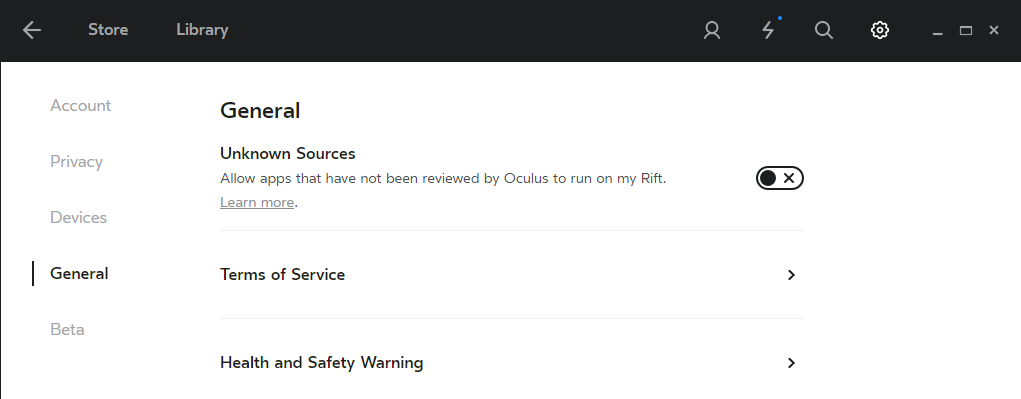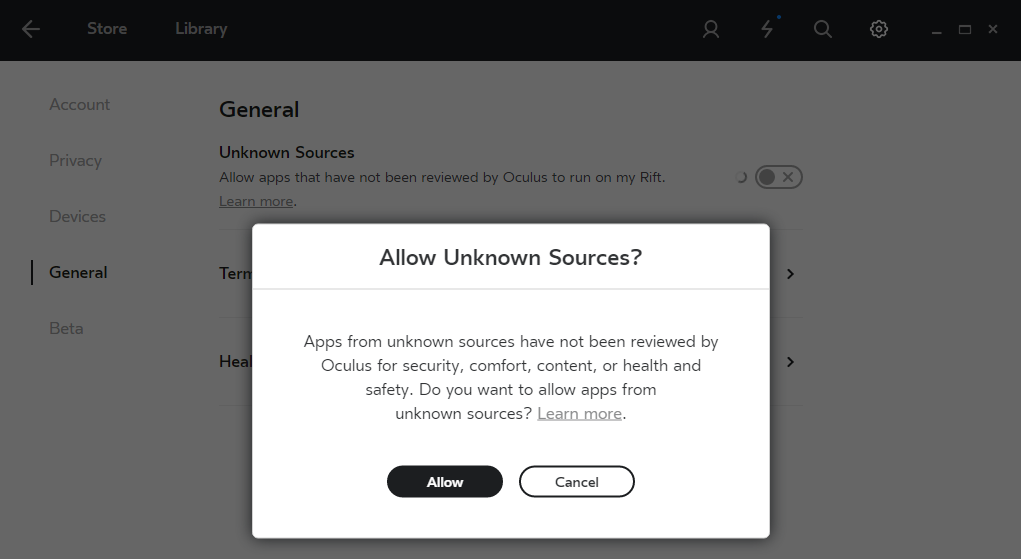Oculus Rift requires an opt-in to run games from other sources

Like the platform-specific Apple App Store or Steam, the Oculus Rift has its own digital storefront, which Oculus says is “designed to prove the best VR experience and content.” Even so, developers are perfectly free to sell their stuff elsewhere, if they prefer, and it won't cost them any extra to do it. But Rift owners will have to take an extra step to get to it.
“As a developer, you don’t have to be in the Oculus Store — you can sell outside, and when you do that you can you use your own IAP [in-app purchases] if you prefer, and we don’t take a cut. You can also request keys (royalty free) to sell your Oculus PC app on other stores, while making it available to the community through the Oculus platform,” Oculus VR wrote in a blog post.
“If you’d like to ship outside the Oculus platform using the SDK, you can. People can access this content by enabling the 'Unknown Sources' setting in the Oculus desktop app. There are considerations when building Oculus PC apps on other platforms: for example, customers must be able to return Home and see Oculus platform overlays and notifications, including the health and safety notice.”
The process for enabling apps outside the Oculus store is simple enough: Enter the Settings menu in the Oculus desktop app, select General, and then hit the “Unknown Sources” toggle. You'll be warned that “apps from unknown sources have not been reviewed by Oculus for security, comfort, content, or health and safety,” and asked if you're sure this is really something you want to do. Decide and proceed as you see fit.
It sounds entirely reasonable to my ears, but Epic Games co-founder Tim Sweeney clearly sees it in a very different light.
Very disappointing. @Oculus is treating games from sources like Steam and Epic Games as second-class citizens. https://t.co/8rFhkECXnRMarch 28, 2016
“It's a sufficient barrier that no competing Android store has achieved significant market share vs. Google Play,” he continued, comparing the Oculus store restrictions to sideloaded Android apps. “Look at the impact of this policy on establishing a de facto Google Play monopoly on Android.”
It's an interesting and valid point, although it's also generally easier to download and run software on PC than it is on a mobile device. What do you think—is this going to be a big roadblock for games and VR experiences that go through Oculus's store? It'll be awhile before we see how it really shakes out.
The biggest gaming news, reviews and hardware deals
Keep up to date with the most important stories and the best deals, as picked by the PC Gamer team.
For now, be sure not to miss our VR Week coverage, which will include guides to building VR-ready PCs (and rooms to put them in), interviews, performance tests, and of course a review of the Oculus Rift headset itself and the software that makes it worth strapping to your face.



Andy has been gaming on PCs from the very beginning, starting as a youngster with text adventures and primitive action games on a cassette-based TRS80. From there he graduated to the glory days of Sierra Online adventures and Microprose sims, ran a local BBS, learned how to build PCs, and developed a longstanding love of RPGs, immersive sims, and shooters. He began writing videogame news in 2007 for The Escapist and somehow managed to avoid getting fired until 2014, when he joined the storied ranks of PC Gamer. He covers all aspects of the industry, from new game announcements and patch notes to legal disputes, Twitch beefs, esports, and Henry Cavill. Lots of Henry Cavill.

